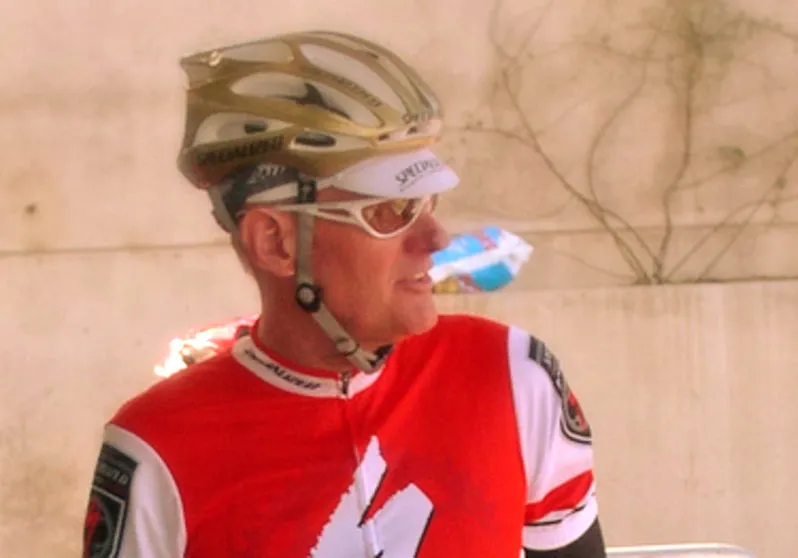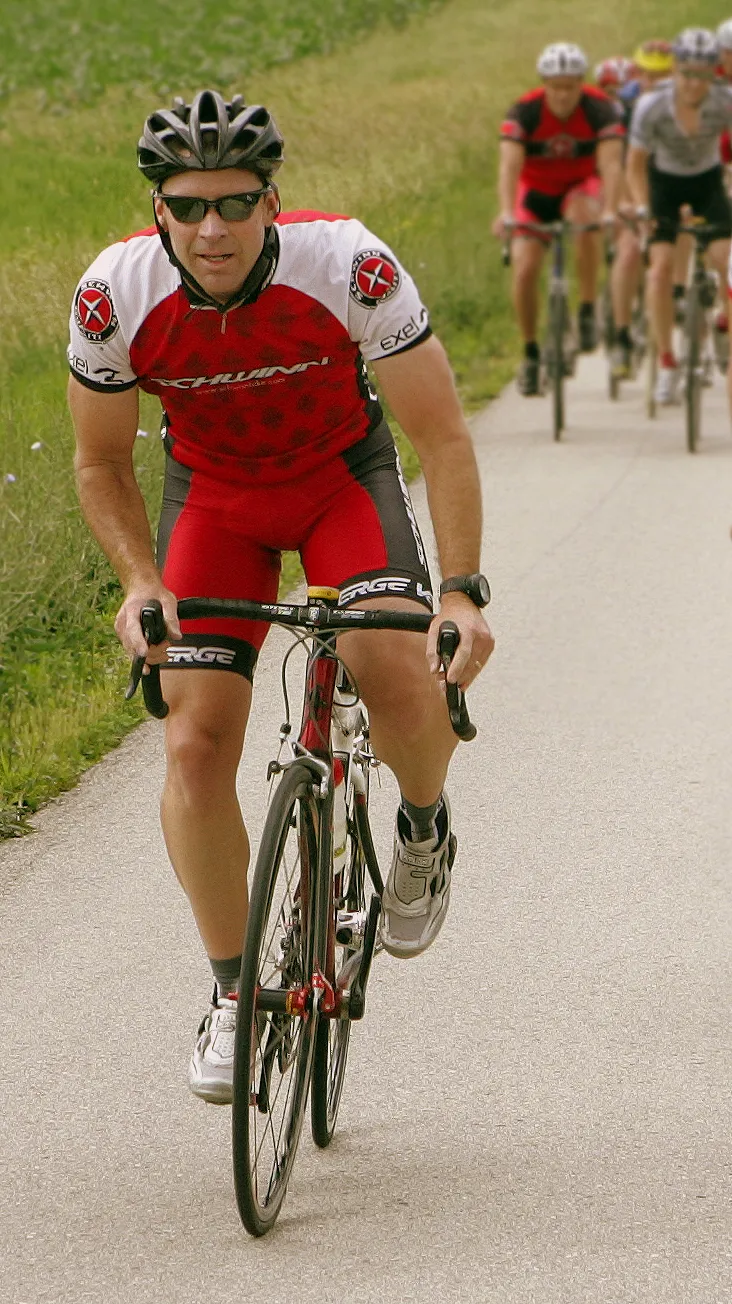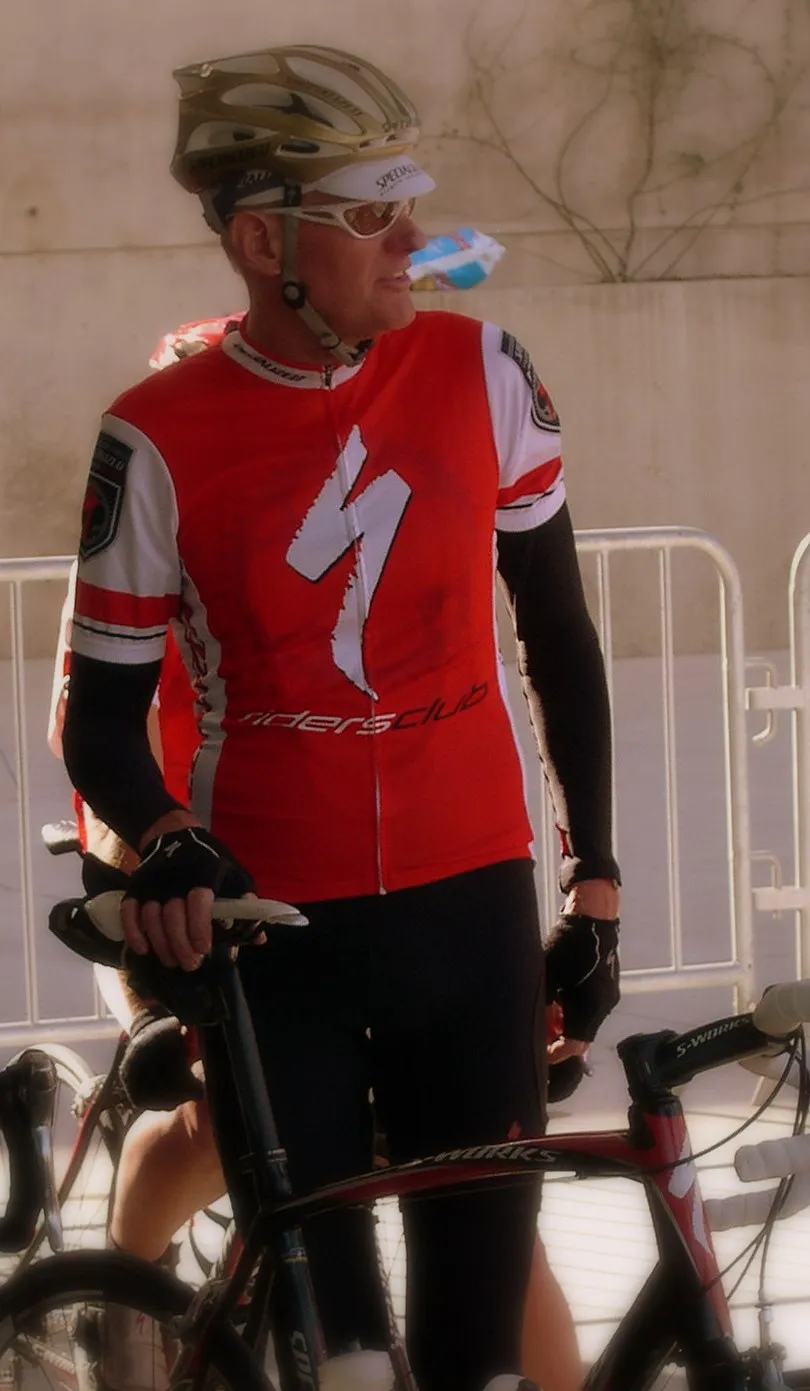There's a trifle whirlwind brewing in the US bicycle industry, concerning the recent sale of Cannondale to Dorel Industries. It seems Specialized's leader Mike Sinyard feels threatened, not by the growing American appetite for cell phones, plasma televisions, Wii, Playstation 3 or other mind-numbing and inactive electronic gadgetry, but by Dorel's purchase of Cannondale.
The tale has all the smackings of Microsoft's CEO Steve Ballmer having a hissy-fit over Google a few years ago. To wit...
Recently, publicly-traded Dorel Industries purchased Cannondale, adding another recognizable bike brand to its stable. The Canadian company, known for its children's gear and furniture, purchased Madison, Wisconsin-based Pacific Cycle in January 2004. Pacific brands include Schwinn, GT, Mongoose and Pacific bikes. There's been a flurry of ill-informed chat group and forum discussions on this topic, but what is actually going on?
History lesson
Like Shimano and SRAM, who make bike parts for high- and low-end bicycles, Pacific uses all channels to sell its stuff: independent bicycle dealers (IBDs), mass market retailers (WalMart, Target) and big-box stores (Performance, Dick's Sporting Goods). Pacific got its start in 1977 by selling inexpensive road bikes to American TV and Appliance in Wisconsin as freebies to be given away with each item sold. Founder Chris Hornung quickly assembled a profitable company, and thousands of decent road bikes were ridden on the roads of Wisconsin.
Pacific quietly built a solid business model, speccing affordable bikes that were eventually sold at Target and Toys R Us. Old timers recall the days when Schwinns were sold at gas stations and hardware stores, where the people met and bought the stuff they needed. It wasn't until California bike retailer George Garner brought the modern concept of an IBD in the late 1950s that bikes were sold in a more professional setting.
Pacific knew that mass merchants, the general stores of our generation, were where people met and bought stuff. As WalMart, KMart, Target and Toys R Us grew, so did Huffy, Pacific, Murray and others. This is where 85 percent of all bikes sold in the US are purchased each year.
Flush with cash, Pacific bought the flailing Mongoose brand for US$20 million in December 2000, then added Schwinn and GT on September 11, 2001, scooping up the troubled brands from Questor Partners for US$86 million.
Like Trek before it, Pacific found a way to rescue dying brands and resuscitate them in a modern way, based either on logistics, marketing or manufacturing. Trek purchased Gary Fisher, Bontrager, LeMond, Klein, Icon and Rolf Wheels in the early to mid 1990s, and after several tries, only the Fisher, Bontrager and LeMond brands have lasted. Klein is a shell of its former self, sold only in foreign countries.
In 2003, after trying to reinvent the off-road motorcycle, Cannondale declared bankruptcy and was purchased by Pegasus Partners for US$58 million. The venture capital group did a decent job maintaining the American manufacturers innovative streak and sponsorships. The Connecticut-based maker of aluminium bikes and clothing went public in the early 1990s (like Rock Shox), but suffered from poor management decisions and slowly bled to death.
Now Specialized founder and president Mike Sinyard is hopping mad that Pacific has snatched Cannondale, although at US$200 million, it's doubtful any other bike company could have done the same. Sinyard, who felt the pressure of expanding distribution in the mid 1990s, sent out this letter to his dealer network back in 1995:
------------
June 16, 1995
Dear Specialized Retailer:
It's been a terrific 20 years for Specialized. We are now looking forward to continuing our leadership role in the coming decades. We want to thank you, our dealers, for helping us to lead the industry in the evolution of cycling through product innovation, racing, and promotions. We value most the role that you have played as our key partners in this success, and we are committed to growing our relationship with you.
If you've been following cycling press lately, you know that the industry is maturing and changing every week. Despite this climate, Specialized remains committed to maintaining the integrity of the Specialized brand by not selling it into the mass merchant channels or competing with our partners in the specialty retail business. We wish to put to rest any concerns that we will sell Specialized bikes and technical accessories into these channels.
To address the needs of our non-traditional consumers, we are launching a new, independent company and brand called Full Force, which will produce quality, value-oriented bicycles and cycling accessories for entry level cyclists. Full Force will drive our OEM manufacturing operations which will continue to produce private label helmets and waterbottles for such top name brands as Nike, Bauer, Gatorade, and Ralph Lauren. Full Force brand products will be sold through general sporting goods stores and select mass merchants.
This dual branding strategy enables Specialized Bicycle Components to maintain the integrity of the Specialized brand, while simultaneously providing new value-oriented consumers with a quality introduction into the sport of cycling. This will make Specialized a more viable company for the long term. Profits from Full Force will be aggressively reinvested back into Specialized research and development, specialty retailers to reach these new consumers and migrate them into your channel for upgrade purchases. This move is consistent with our heritage of evolving the sport and guiding change, rather than being steered by it.
You may have questions or comments regarding the enclosed information and the specific programs which we have designed for you. My commitment to you is that we will aggressively reinvest in the exciting, innovative product, effective dealer support programs, and the people and partners that have made Specialized the premier brand that it is today.
Thank You.
Sincerely,
Mike Sinyard, President
Specialized Bicycles Components
------------
Of course, the Full Force effort to get a lower status Specialized-backed brand into the big box retail channel fell flat, just like Trek's effort, called Jazz. I was working for a Schwinn/GT IBD in Milwaukee, Wisconsin in the early 1990s, and it was really dog-eat-dog in those days. Schwinn was coughing up a lung, GT was on top, and both Cannondale and Specialized were trying to outdo each other and expand internationally. Trek and Giant were quietly gobbling up market share.
Now, back to 2008. Sinyard, like the rest of the industry, is not quite sure how to handle the news of Pacific buying Cannondale, so within days he sends this letter to his current dealer network:
------------
February 11, 2008
Dear Alliance Dealer:
Specialized is and always will be exclusively dedicated to the independent bike dealer. I’ve learned from my mistakes over the years and now know that anything less than 100 percent focus on the IBD simply doesn’t work. We owe a huge debt of gratitude to our retail partners, and we seek to repay that debt every day by making sure every dollar we invest goes back into our channel through the creation of innovative bikes, equipment and marketing that drives future prosperity for our retailers. When there is a threat to the strength of those retailers, it is important that we speak out against it.
When I read the news about the Dorel/Pacific acquisition of Cannondale and their reassurances about “focusing on the IBD channel”, I felt compelled to write and express my views about this situation. It is not only bad news for the IBD channel, but for all of the people and brands who owe their continued existence to the strength and health of that channel.
Pacific is the largest mass merchant bicycle company in the world. Does anyone doubt that Cannondale, GT and Sugoi will continue to be distributed through big box and mail-order retailers like Dicks Sporting Goods, Eastern Mountain Sports, REI and Performance? Pacific has a proven track record of acquiring once-great brands like GT and Schwinn, who owed much of their success to local bike shops, and then harvesting that value in other channels, including mail order and mass merchants like Wal-Mart. It’s just part of their business model. I believe if dealers continue to sell and promote Cannondale, they are strengthening this mass market conglomerate and eroding the specialty retail channel.
It is up to each of us who rely on the specialty channel to respond to this threat as we see fit. As for Specialized, we are dedicated exclusively to independent bike dealers and will continue to invest in the bikes, equipment and programs that ensure a bright future for this specialty channel. To ensure the continued strength of IBD retail, I encourage all dealers to support IBD-exclusive brands and companies. I invite any dealer who would like to speak with me further about this matter to give me a call directly.
Sincerely,
Mike Sinyard, Founder & President
Specialized Bicycles
------------
Mike Sinyard should realize that there's a war going on for everyone's wallet, but he appears to be aiming his cannon the wrong way. As I've written many times the past 15 years, there's no room in our small industry for quibbling when John and Jane Q. Public are getting fatter and their kids are too sheltered to know the joys of bicycling. How many people do you know that think nothing of spending US$1,500 on a computer, just to send and receive e-mail, or the same amount or more for a flat-panel television? These same people squawk when they find out that a quality bicycle costs US$500-plus.
But I digress. The man who replaced Chris Hornung in December 2006 is Jeff Frehner. Like most bike companies, Pacific has employees in its ranks that have owned or managed bike shops, worked at several different bike companies, and have extensive experience in marketing, design, customer service, sponsorship and racing. Here's Frehner's rebuttal to Sinyard's letter, both of which appeared in the March 1, 2008 Bicycle Retailer & Industry News, the American trade publication:
------------
To Independent Bicycle Dealers worldwide:
Wow, how do you respond to a letter like this without sounding defensive?
Perhaps Specialized is intimidated. Specialized recently issued a letter to their Alliance Dealers addressing their concerns with the acquisition of Cannondale by Dorel. Specialized has decided to go "Full Force" after Cannondale Sports Group, by making a number of accusations and assumptions, that I would like to address.
As you are all aware, Dorel has acquired Cannondale. Based on this acquisition Dorel has established an entirely separate business division devoted to the Independent Dealer. Cannondale Sports Group will be dedicated to developing and marketing products to the IBD channel. Dorel is committing the resources necessary to support an IBD business model. The Cannondale Sports Group may be in its infancy. However, the collective brain trust within this organization spans several decades and we¹ll use this talent to build upon the rich history of product innovation and craftsmanship that our brands have established during the last three decades.
I agree with Mike that the Cannondale acquisition has huge implications for Specialized and the IBD. Specialized seems concerned with our strength of resources, as well as our desire for success within the IBD channel. They should be concerned. Dealers, on the other hand, should be ecstatic that they have an option to support a supplier whose goal is to grow through partnership with multiple brands, rather than minimum floor space and strong-arm tactics.
We as an organization will owe our continued existence to the strength and health of the IBD channel, and for that reason we are committed to:
• Developing Innovative Products
• Industry Collaboration to grow the entire IBD Channel
• Expanding our role as a leader in Bicycle Advocacy
• Marketing Investment within the IBD Channel
• Creating Dealer programs to increase revenue and profit
Our intentions noted above are nothing but positive and we look forward to turning these goals into a profitable reality with our IBD partners--regardless of what others may sling our way.
The available resources of the Cannondale Sports Group will enable our team to approach suppliers and vendors with even greater buying power and sophistication. We are committed to using these marketplace advantages to drive revenue and profitability through our dealer network. We are 100 percent confident that our fine retailers will see beyond the wild speculations and mud slinging of a competitor and continue to grow with us, as we grow with them.
I for one am interested in making my business better and growing the pie for all cyclists and cycling related businesses. It seems counter productive to be so preoccupied with what the competition is doing. I welcome any dealer who would like to discuss the Cannondale Sports Group and our dedication to the IBD channel to call me directly.
We¹re going to get back to making bikes now!
Regards,
Jeff Frehner, President and CEO
Cannondale Sports Group
------------
So, you make the call. Is there room in our industry for several big companies, or should everyone one be given a second chance? Cannondale, Specialized, GT, Schwinn and Mongoose mean different things to different people, but they all represent decades of blood, sweat and tears. When my wife and I owned a bike shop and had a bike brand in Dayton, Ohio, we experienced firsthand the challenges facing every small, medium and large business. Bullying will not promote our sport. Now's the time to work together, and lay a healthy foundation for our children and generations to come. There's room for all, especially for those that play nice.
What do you think?


